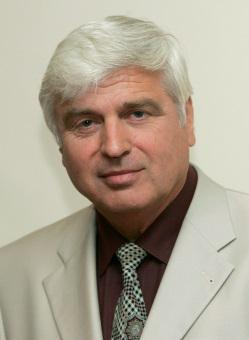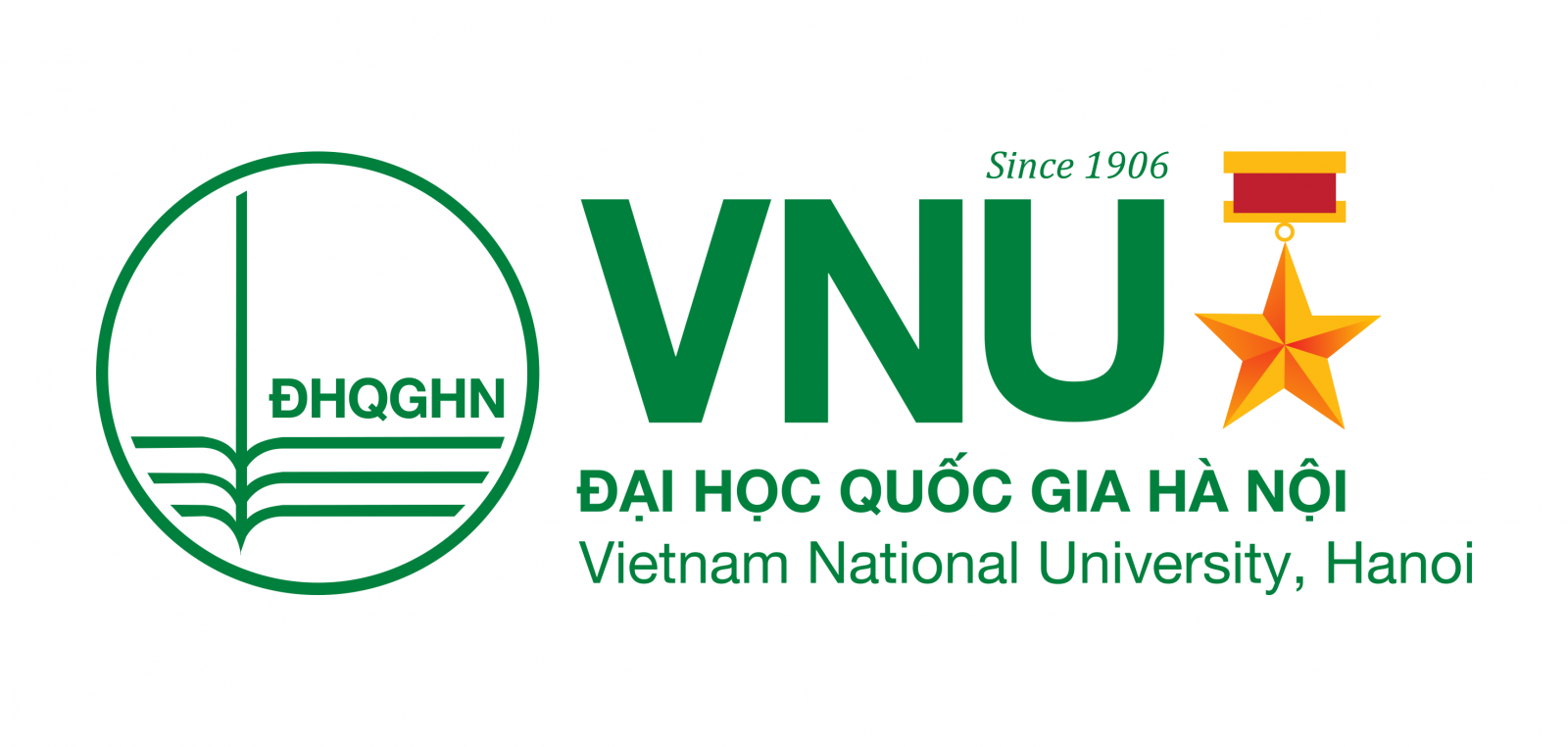
Kiril Alexandrov Anguelov
Biography
Prof. Kiril Al. Anguelov was born on October 1, 1947 in Kyustendil, Bulgaria. He received his Higher Education in May 1972 at the University of Mining and Geology, specialty "Engineering Geology and Hydrogeology", where in the same year on October 1, 1972 he started on a new position as an assistant (assistant professor).
In 1973, Kiril Al. Anguelov became a postgraduate student at the Moscow State University (Moscow, Russia) under the leadership of Professor Evgenii Mikhailovich Sergeev. In only 3 years he managed to defend his PhD dissertation (thesis) on "Strengh-deformation properties of clay as affected by their microtexture and structural bonds".
After the defense of his doctoral dissertation, Kiril Al. Anguelov was employed as a lecturer at the St. Ivan Rilski University of Mining and Geology (Sofia, Bulgaria) and in 1985, he was elected as an associate professor. In 1985-2015, he delivered lectures at the university on engineering geodynamics, regional engineering geology and engineering geoecology. After his retirement from the University of Mining and Geology in 2015, Ass.Prof. Kiril Anguelov participated actively in the establishmentg of a new specialty “Geotechnics and Engineering Geology” at the University of Transport (Sofia, Bulgaria). Until present, he is lecturing at this university on special issues of engineering geology, namely, mitigation of landslide hazard.
In the course of his professional acitvity, Assoc. Prof. Kiril Anguelov was an invited lecturer in engineering geology in a number of countries: China, Japan, Russia, West Berlin, Cyprus, the Netherlands, Switzerland. At present, he is engaged in giving a cycle of lectures as a visiting professor at the University of Ocean (Qingdao, China).
Assoc. Prof. Kiril Anguelov is not only a university lecturer, but also a recognized Bulgarian expert and practicing geotechnical engineer in engineering geology of international repute. He is the founder and head manager of three geotechnical companies GEOTEHNIKA, BONDYS Ltd. and GEOLOBY Ltd.
In addition to his direct tutorial and scientific work in Bulgaria, Assoc. Prof. Anguelov is actively involved in the IAEG activities. He was one of the founders and establishers of the Bulgarian National Group of Engineering Geology. In 1982, by the recommendation of Prof. E.M. Sergeev, Prof. Marcel Arnould and Prof. Richard Wolters, the Bulgarian group was accepted as a member of the IAEG, with Prof. M. Minkov as the national group President and Assoc. Prof. K. Anguelov as a the Secretary. In 1990, K. Anguelov took the office of the Vice President IAEG for the Eastern Europe for the term 1990-1994. On his initiative, the European national groups IAEG were re-united on a new regional principle (in southern and northern parts of Europe instead of eastern and western parts). This measure helped to ensure the equivalence of all European engineer geologists in the IAEG.
Assoc. Prof. Anguelov actively and regularly participates in the activity of Executive Board of IAEG. Twice (in 2005 and in 2016), he organized the International Symposiums IAEG on Natural Disasters in Sofia. Being one of the oldest members of IAEG Council, he is aware of almost all changes in IAEG's activities and he keeps excellent collegial and personal friendly relations with the most active members of IAEG. He held especially cordial contacts with Academician Prof. E. Sergeev, Prof. Marcel Arnould, Prof. Michael Matoula, Prof. Richard Wolters, Prof. W.Dearman and others who are no longer with us. He still maintains the same active contacts with all IAEG members.
For his outstanding scientific achievements, Ass.Professor Anguelov has been awarded with two major international awards:
1. The First Richard Wolters Prize for Young Scientists (1988)
2. Academician E.M. Sergeev’s medal – the Russian award for the contribution to engineering geology (2014).
He is married and he has two sons, both of them are engineer geologists.
In recent decades, natural disasters’ increasing frequency, intensity, and unpredictability have emerged as tangible indicators of a changing climate and a deteriorating environment. From catastrophic floods and prolonged droughts to extreme heatwaves, typhoons, and sea-level rise, the world is witnessing a new normal in which disaster risk is no longer an anomaly but a structural condition of development. According to the United Nations Office for Disaster Risk Reduction (UNDRR), over 6,500 climate-related disasters were recorded globally between 2000 and 2020, double the number observed in the previous two decades, causing hundreds of thousands of deaths and trillions of dollars in economic losses.
This trend underscores the interdependence between climate change, environmental degradation, and disaster risk. Human-induced pressures such as deforestation, biodiversity loss, unregulated urbanization, and the overexploitation of land and water resources have amplified the exposure and vulnerability of communities to disasters and diminished the natural buffers that once helped ecosystems regulate and absorb climatic shocks.
Climate change as a threat multiplier
Climate change acts as a threat multiplier, exacerbating pre-existing socio-environmental risks and generating new forms of hazards. In low-lying coastal regions, rising sea levels interact with poor land-use planning and rapid population growth to create chronic flood risks. In mountainous areas, altered precipitation patterns and melting glaciers increase the likelihood of landslides and flash floods. In agricultural regions, shifting rainfall cycles and temperature anomalies undermine food security and rural livelihoods.
These hazards disproportionately affect developing countries, especially those in Southeast Asia, including Vietnam. Here, the convergence of geographic exposure, limited adaptive capacity, and socio-economic inequalities renders populations particularly vulnerable to the cascading impacts of climate-driven disasters. For these reasons, addressing disasters and climate change cannot be separated from efforts to promote environmental resilience and inclusive development.
The case of Vietnam: Vulnerability and adaptation imperatives
Vietnam is recognized as one of the countries most vulnerable to climate change, ranking high in global risk indices for natural disasters. Its long coastline, densely populated delta regions (e.g., the Mekong and Red River deltas), and high dependency on climate-sensitive sectors (agriculture, fisheries, water resources) expose it to a wide range of risks, including:
- Saltwater intrusion and coastal erosion in the Mekong Delta.
- Flash floods and landslides in upland and mountainous provinces.
- Urban flooding due to extreme rainfall combined with rapid, unregulated urbanization.
- Drought and extreme heat impacting agriculture and water availability.
While Vietnam has made significant strides in disaster preparedness, climate policy formulation, and community-based adaptation, there remains a critical need to localize adaptation strategies, enhance early warning systems, and integrate climate risk into spatial and socio-economic planning. Furthermore, the impacts of disasters on vulnerable populations-ethnic minorities, women, and the rural poor-demand a stronger focus on equity and justice in resilience planning.
Session objectives and interdisciplinary focus
In light of these challenges, Session 4: Disasters, Environment, and Climate Change of the “Green Transformation in the Context of Global Change 2024” conference aims to provide a multidisciplinary platform for researchers, practitioners, and policymakers to:
- Explore the scientific and policy dimensions of disaster-climate-environment interactions.
- Present empirical case studies of climate-induced disasters across diverse ecological and socio-economic contexts;
- Evaluate existing adaptation frameworks and propose innovations in disaster risk governance.
- Identify knowledge gaps, institutional bottlenecks, and opportunities for collaborative solutions.
- Discuss the role of local knowledge systems, nature-based solutions, and cross-sectoral integration.
This session emphasizes the physical and environmental aspects of climate hazards and the socio-political processes that shape vulnerability, response, and recovery.
Toward integrated resilience and adaptive governance
Ultimately, this session seeks to move beyond fragmented sectoral responses toward a systemic, integrated, and adaptive approach to disaster risk reduction and climate adaptation. It aligns with global frameworks such as the Sendai Framework for Disaster Risk Reduction, the Paris Agreement, and the Sustainable Development Goals (SDGs), particularly SDG 13 (Climate Action) and SDG 11 (Sustainable Cities and Communities).
By synthesizing scientific evidence, field-based insights, and policy analysis, this session contributes to designing context-specific, inclusive, and forward-looking strategies for building resilience in increasingly complex climate-environment-disaster interactions.


